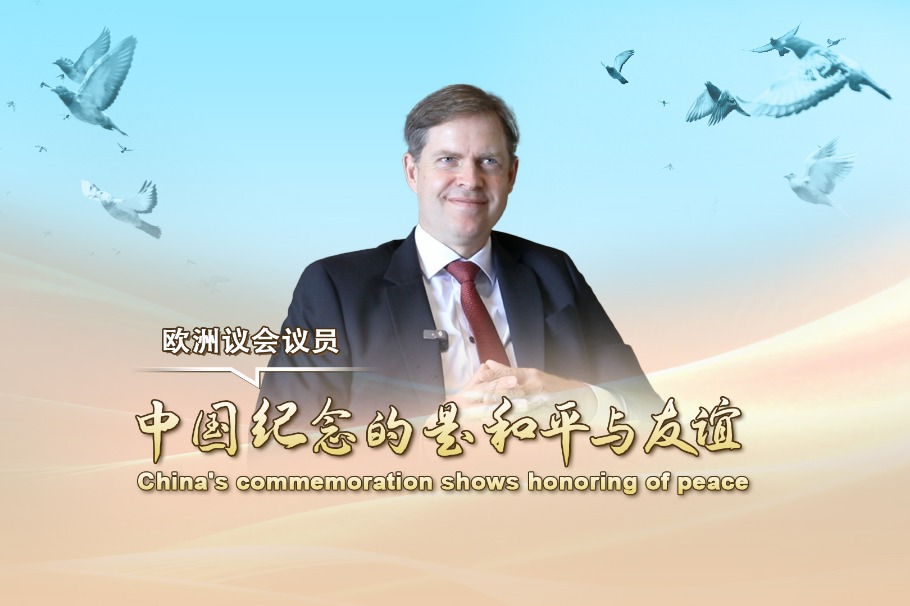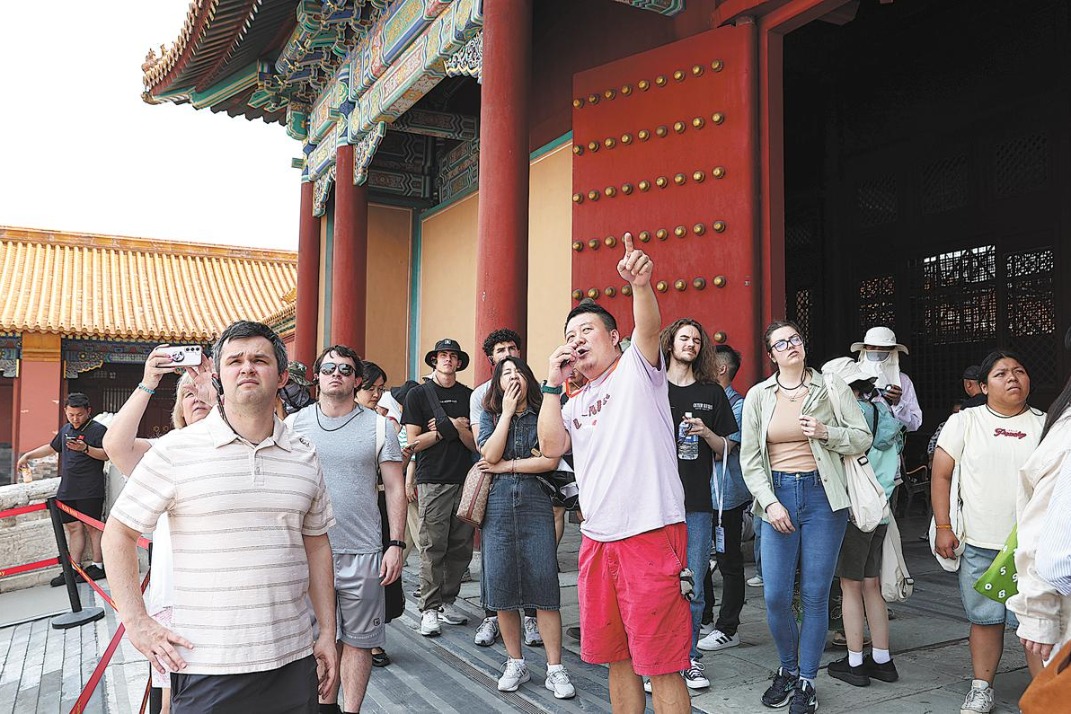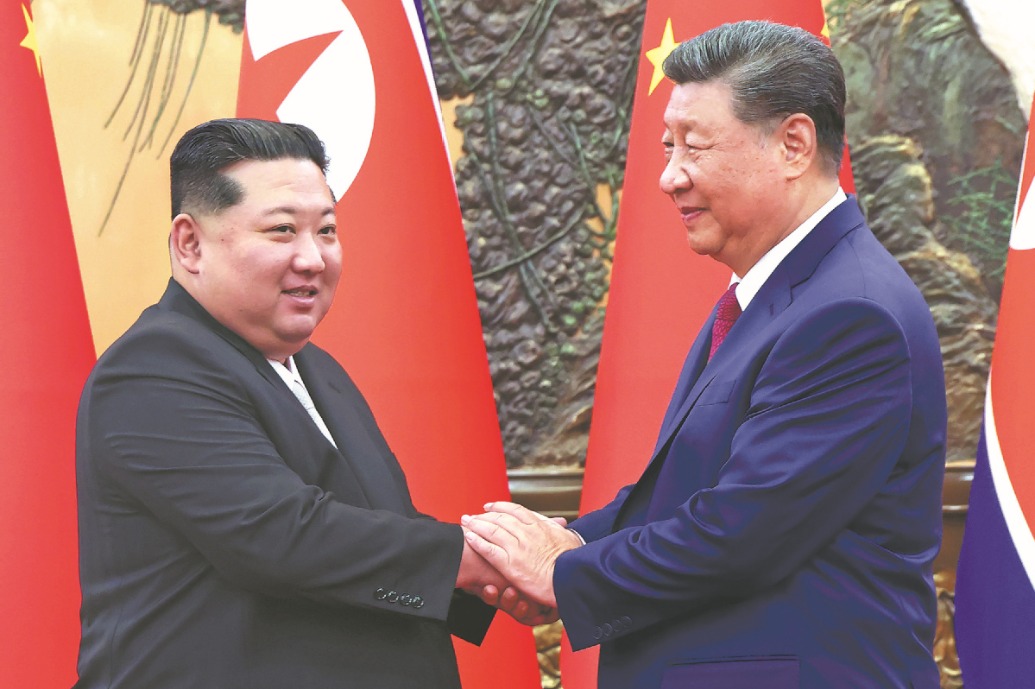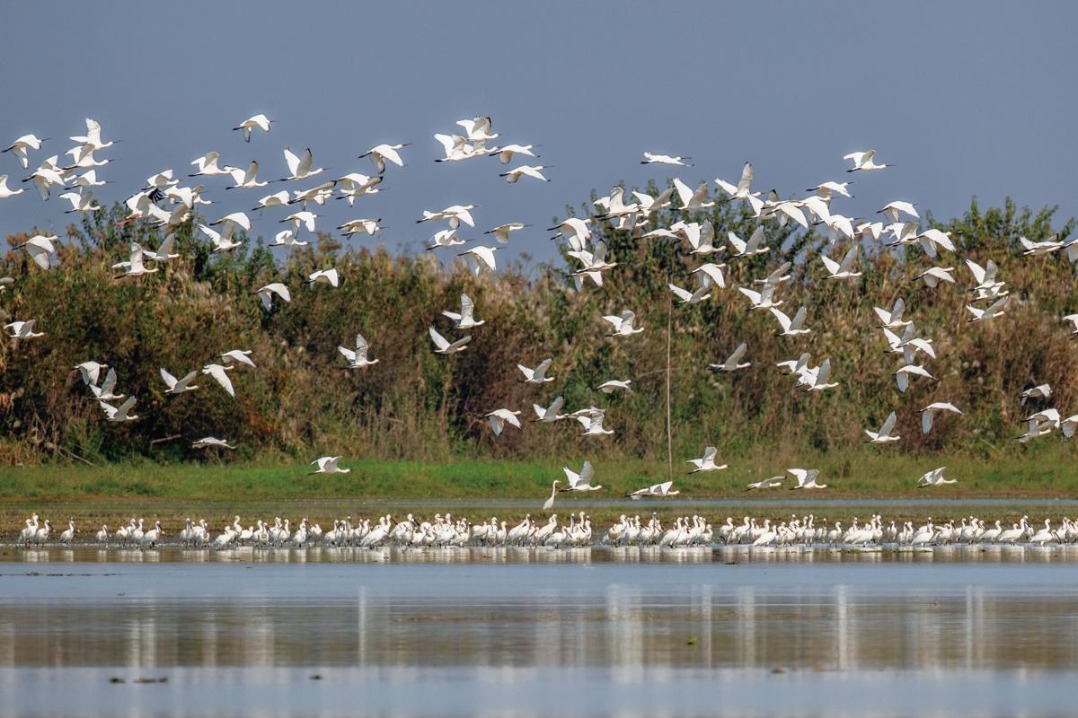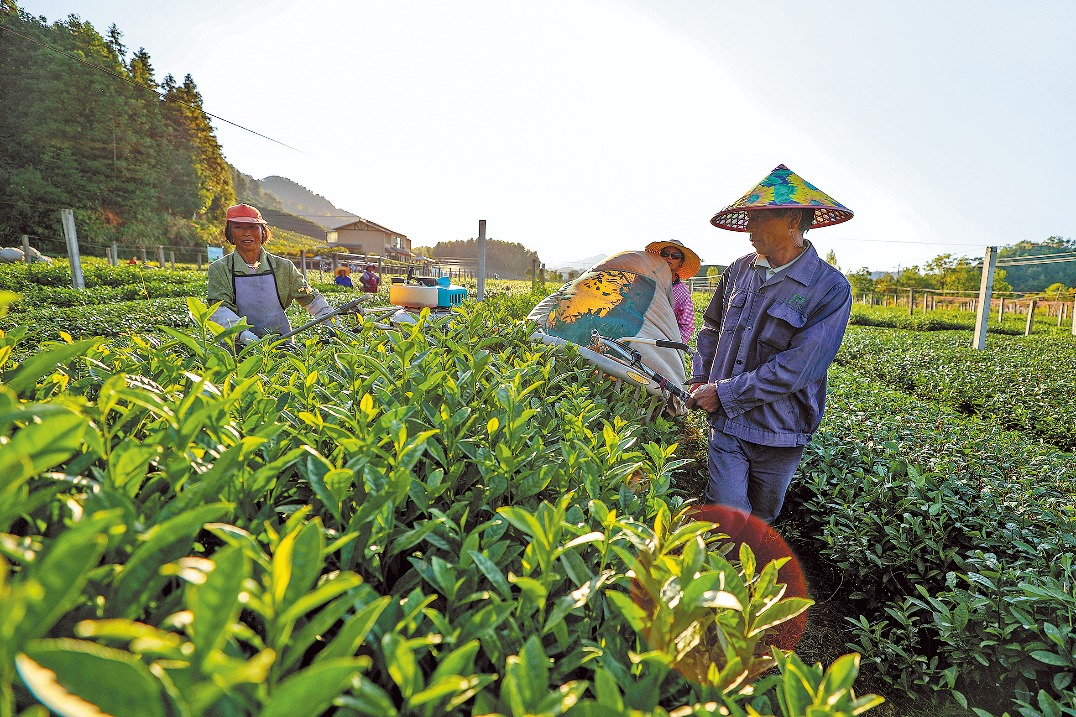The Fortunes Book Talk: Understanding what it means to be Chinese

The cozy open space of the Politics & Prose bookstore, a longtime Washington favorite, is transformed into rows of black folding chairs surrounding a wooden lectern.
The room is silent; most people are shifting in their seats or flipping through their copies of The Fortunes, the focus of the lecture.
Its author, Peter Ho Davies, emerges from a side entrance, waving to the crowd. Davies, a renowned historical-fiction writer from Britain, has stopped in Washington to perform a reading from his latest book.
| Peter Ho Davies, British historical fiction author, speaks about his latest novel The Fortunes at Politics & Prose on Sunday in Washington. Sophia Wu / For China Daily |
"It's nice to see everyone here, some familiar faces as well," Davies says to the audience, which consists of longtime fans, fellow contemporary authors and publishers.
The Fortunes is a novel with four separate stories about four Chinese Americans, spanning a century. Many of the characters are based on real-life figures, such as Anna May Wong and Vincent Chin, which Davies draws fictional accounts on.
The first part takes place in the 1860s, with the historical landscape of early Chinese immigration and railroad labor. The experiences of Ling, a half-Chinese immigrant who becomes a gentleman's valet in San Francisco, are the focus of the first section.
The second story explores the life of Anna May Wong, a Chinese-American actress in the 1920s, who faces discrimination in Hollywood. She loses the role of her lifetime as O-Lan in The Good Earth to a white actress named Luise Rainer. As a result, she struggles with her Chinese and American identities and travels to China for the first time to learn more about her background.
The third section revolves around the hate crime of Vincent Chin, whose killers believed him to be Japanese during the 1980s anti-Japanese political landscape.
The final section of the book, which is set in the present day, centers on the semi-autobiographical main character, a biracial writer who goes to China to adopt a child.
Ultimately, all of the characters work on coming to terms with what it means to be Chinese and Chinese-American - and on some level, an outsider - in face of racial limitations and tensions.
As someone who is half Welsh and half Chinese, Davies himself went through a similar experience grappling with his identity. "I felt that there were lots of little moments in my life where I had to reappraise a sense of myself. I was very conscious growing up looking different," Davies had confided earlier.
Moreover, as a British immigrant to the US, Davies admits that he could relate with the Chinese immigration to the US experience to an extent, particularly American assimilation.
To Davies, a hybrid identity of being both Chinese and American exists separately and authentically on its own, which makes cross-cultural heritage and experiences all the more special.
At the lectern, he flips open an 11-by-8 inch manuscript - he blames aging on needing larger print sizes of his own book, and the audience laughs appreciatively.
He reads aloud the section about Anna May Wong, who is Chinese by blood but has spent her whole life growing up in Los Angeles. As previously mentioned, she visits China for the first time to visit her father in the family's village and films the process along the way.
Davies' emotive reading effectively evokes feelings of disappointment, from when Wong copes with losing her role to when she faces public backlash for portraying a prostitute or Dragon Lady.
Being ethnically Chinese is a part of Wong that has both helped and harmed her, which is largely shaped by the historical context of American perceptions of China and the Chinese at the time.
The end of the chapter does not provide solace or conclusion, but rather paves the way for openended questions about identity and culture, race and nationality.
While Davies had previously mentioned that he was originally a bit apprehensive about representing the Chinese-American community, he now embraces that all-encompassing spectrum that it belongs to.
Whether born in China or the US, or born Chinese to non-Chinese parents, the Chinese community perseveres under the shared umbrella of a China connection.
Sophia Wu in Washington contributed to the story
(China Daily USA 09/16/2016 page14)
Today's Top News
- China plays a vital role in SCO's green transition
- Beijing warns Manila of 'all consequences'
- World needs right WWII narrative
- Military parade not a demonstration of bloc confrontation
- New 1st-tier cities gain ground in talent battle
- Global cooperation in AI highlighted

















